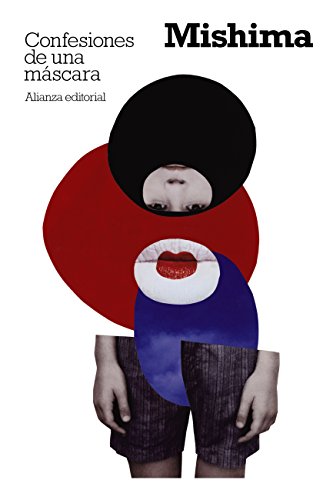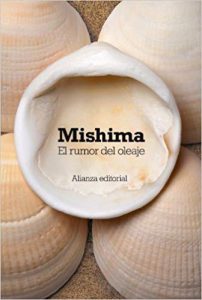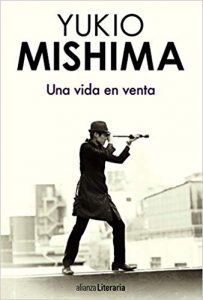And it turns out that beyond the always surprising Murakami there is life in Japanese literature. In fact, Murakami is indebted to a great Japanese literary tradition of the XNUMXth century.
A literature of the last century profuse in great authors such as kobo abe, kawabata, Kenzaburo Oe or Mishima that in his early and theatrical death he also composed many of the greatest Japanese literary pages. And that in his 45 years of life, skewed by himself doing harakiri, he went on to publish around 40 novels.
A prodigy of author who touched the nobel and lost it with another great already mentioned, a Kawabata from which he had learned so much.
Mishima is an intense writer, obsessed with the lofty in substance and form from a trade taken as everything in his life, with a Spartan vocation. Mishima and his dramatic vis delivered to the cause of an open grave literature. Characters facing poles and extremes, high voltage emotional intensity.
Top 3 Recommended Novels by Yukio Mishima
Confessions of a mask
Or perhaps confessions of the author behind the mask. Because many point to that recreation of the author's own life from his childhood. And with that haze of the writer made myth, everything is read with special relish.
Thus, empathy with Koo-chan, a kind of young Japanese romantic, caught between the traditional and the new winds of modernity and troubled by his own internal storms, is winning us each new chapter. Little by little Koo-chan's life connects with that universal nature of the individual, with that universe that makes us all different based on experiences and needs that push from the depths of being.
Koo's differences, however, end up connecting with an aspect of homosexuality that also carry the unbearable burden of the moral when this space restricts this type of essential drives. That is Koo-chan's mask, that is his calling card to others while in his becoming narrated for readers, we know the real, the entorpetic soul so it cannot be accepted as the right thing for the generality.

The rumor of the surf
Who better to build a great love story with the most authentic romantic band? Mishima was that writer who profusely poured into his narratives his deepest impressions, those that led him to his drastic end, conceiving life as something secondary to the essence of the ideal.
And of course, ideally, love as sustenance in a story of two young people involved in that love affair that awakens everything, from childhood to maturity. The scenario perfectly complements that background of raging humanity towards the discovery of what is truly important to Mishima, the passions capable of moving everything, of changing everything.
Because the small island, insignificantly transmuted into the small existence of its inhabitants, takes on that fascinating glow of paradise thanks to the two young people devoted to love. And that is when the island, conquered by routine and daily gray, once again presents its aromas and colors as if it were suspended over a sea with promises of eternity for humanity, with siren songs that, even being mere hallucinations, make the space subjective. between lovers, a new universe of life and color.
A life for sale
A truly eager soul like Yukio Mishima always ends up colliding with the farce of conventions, with the fleetingness of time, with the peremptory feeling of happiness.
In this novel A Life for Sale, the author presents an alter ego in its essentials. Hanio Yamada, the publicist and protagonist of the story, may not apparently have much to do with the author. And yet his disoriented vitalism, his nihilism as existential drift in the face of frustration emanate from the same tormented soul of Yukio Mishima. The point is that Hanio Yamada has a still young life, of wasted time that may perhaps be the subject of commercial exchange. In a fit of defeatist idea, Hanio decides to put his life up for sale. And nothing better than the classified section of a newspaper in which others sell their bodies, memories of their past or advertise an alienating job.
It is suggestive for me to think what would happen in reality. The grotesque idea would generate a multitude of reactions that, in many cases would go beyond fiction ..., different potential buyers contact Hanio to carry out the transaction. Of course, the offer of a life becomes for every wicked buyer a kind of slavery to please the most evil instincts or pretensions. From an infiltrated spy agent to a young man with whom to cover twisted sexual needs, going through a particular hit man with whom he can face old family quarrels.
Hanio Yamada tries to face the consequences of his decision, until he understands that living on the knife's edge of the most twisted wants or needs of others exhausts him. With the discovery that so many people in the world are equal to or worse than he is enough. The problem is, do you know if you will be able to back down from your first decision to sell your life? Contracts, no matter how leonine, once signed must be honored. The idea of this novel borders on absurd humor, with an acid point, from the lucidity of one who observes the void. And that observer is none other than Yukio Mishima, a guy capable as he was of leaving the scene with that oriental theatricality of seppuku, which has been a beheading.
The most curious thing about this novel is that it recovers after many years of ostracism. Published in installments in the 60s, it is now being recovered for the West thanks to the good reception of new Japanese readers.



I came here looking for Japanese authors, what a great blog you have! Greetings.